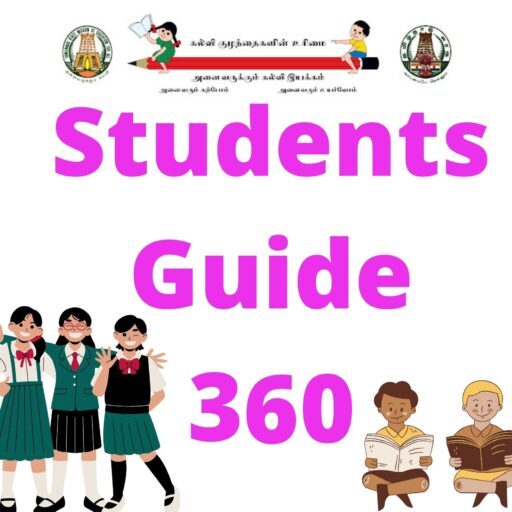4th Science Guide Term 3 Lesson 3 Air We Breath
4th Science Solution – Guide – Term 3 Unit 3 Air We Breath – English Medium
4th Standard Science Guide Term 3 Lesson 3 Air We Breath Book Back Question and Answers Download PDf English Medium. 4th Science Term 3 English Medium Book in answers. 4th All Subject Book Back Answers.

4th Science Guide Air We Breath Text Book Back Questions and Answers
Samacheer Kalvi 4th Science Guide Term 3 Chapter 3 Air We Breath
I. Choose the correct answer :
Question 1.
Air is a __________
(a) Mixture
(b) Compound
(c) Complex
Answer:(a) Mixture
Question 2.
Percentage of oxygen in air is about
(a) 21
(b) 78
(c) 1
Answer:(a) 21
Question 3.
Root nodules of some plants contain .
(a) Oxygen
(b) Nitrogen
(c)Neon
Answer:(b) Nitrogen
Question 4.
The major reason for air pollution is
(a) Waste
(b) Smoke
(c)Water vapour
Answer:(b) Smoke
II. WHO AM I?
Question 1.
I am a mixture of gases.
Answer:Air
Question 2.
I give you oxygen.
Answer:plants
Question 3.
I am not the supporter of burning.
Answer:Nitrogen
Question 4.
You can help me to decrease pollution by riding on me.
Answer:Bicycle
III. Write ‘True’ or ‘False’ :
Question 1.
plants need nitrogen for their growth.
Answer:True
Question 2.
Air is made up of oxygen only.
Answer:False
Question 3.
The gas used for burning things is argon.
Answer:False
Question 4.
Carbonated drinks are bad to health.
Answer:True
IV. Match the following :
Question 1.
Answer:

V. Fill in the blanks :
Question 1.
Air is a mixture of many _________Answer:Gases
Question 2.
Amount of carbon dioxide in the air is ___________%Answer:0.03
Question 3.
We inhale __________ gas.Answer:Oxygen
Question 4.
__________ is used in fire extinguishers.Answer:Carbon dioxide
VI. Answer the following questions in brief :
Question 1.
What are the importance of air in our daily life?
Answer:
- Oxygen present in air is needed for respiration.
- We can speak and hear the sound only when there is air around.
- Air helps in the dispersal of seeds for plant reproduction.
- Monsoon and rain occurs due to the wind action.
- Air regulates the atmospheric temperature.
Question 2.
What are the components of air?
Answer:
Components of air are
- Nitrogen
- Argon
- Carbon dioxide
- Other gases
Question 3.
What are the adverse effects of air pollution?
Answer:
- Global warming
- Formation of smog,
- Formation of acid rain
- Aerosol formation
- Depletion of ozone
Question 4.
List uses of oxygen.
Answer:
- All living things use oxygen for breathing.
- Oxygen is essential for burning.
- Oxygen cylinders are used in hospitals to enable the patients to breathe when they cannot breathe normally.
- Oxygen is used in gas welding.
VII. Give short answers :
1. How can we reduce air pollution?
Answer:
Air pollution can be reduced by the following steps.
- Alternative source of energy (E.g. Solar energy) should be used.
- Air filters should be used to prevent harmful gases mixing with air.
- Smoke emission test and certification of motor vehicles must be enforced.
- More trees should be planted to absorb carbon dioxide.
2. What are the diseases caused due to air pollution?
Answer:
Air pollution cause irritation in the eyes, nose and throat. Air pollution can
also produce wheezing, coughing and breathing problems in humans.
Some of the major effects of air pollution on human beings are:
- Respiratory diseases.
- Example: Flu, Tuberculosis
- Cardiovascular damage.
- Fatigue, headaches and anxiety.
- Nervous system damage.
3. List out the uses of carbon dioxide.
Answer:
- Carbon dioxide helps plants in photosynthesis.
- It is used in fire extinguishers.
- It is used in refrigerators as dry ice for cooling purpose.
- It is used to make plastics and polymers
4th Science Guide Air We Breath InText Questions and Answers
Activity (Text Book Page No. 88)
1. Take a squeezable bottle. Make a hole on the lid and close the bottle tightly. Bring the bottle near your face and press the bottle. What do you feel?
Answer:
Air will come rushing out of the bottle.
Samacheer Kalvi 4th Science Guide Term 3 Chapter 3 Air We Breath
Let us do (Text Book Page No. 89)
From the given objects, find out the objects which has air in it.

Let us do (Text Book Page No.90)
Tick (✓) the objects which gives out water vapour.
Question 1.
Answer:

Activity (Text Book Page No.91)
1. Write the percentage of the gases present in air.
Answer:

Activity (Text Book Page No.91)
1. You might have seen some huge colourful balloons flying high in malls. Those balloons are filled with nitrogen gas. Write the reason for filling nitrogen gas in balloons.
Answer:
- The amount of nitrogen present in air is about 78% so it will float in air and will float upwards and it is also non-flammable gas.
Activity (Text Book Page No.93)
Classify the following
(Dog, cat, Coconut tree, monkey, brinjal plant, papaya plant)
Question 1.
Things which give out oxygen Things which give out carbon dioxide
Ans wer:
|
Things which give out oxygen |
Things which give out carbon dioxide |
|
Brinjal plant |
bog |
|
Papaya plant |
Cat |
|
Coconut tree |
Monkey |
Activity (Text Book Page No.95)
Tick (✓) the causes of global warming
Answer:

Activity (Text Book Page No.96)
1. Write slogans on harmful effects of air pollution in a chart and stick it on the display board

- Don’t be mean, keep air clean
- Spread solution, not Pollution
- Give trees a lot of care, so you can breath fresh air
- Say Loudly ‘No’ to air pollution
Samacheer Kalvi 4th Science Guide Air We Breath Additional Questions and Answers
I. Choose the correct answers :
Question 1.
__________ is important for all living creatures.
(a) Dust
(b) Pure air
(c) Unclean air
Answer:(b) Pure air
Question 2.
Air has no ___________ & __________.
(a) smell
(b) colour
(c) smell & colour
Answer:(c) smell & colour
Question 3.
____________ gas is filled in tyres of vehicles.
(a) Oxygen
(b) Nitrogen
(c) Carbon dioxide
Answer:(b) Nitrogen
Question 4.
____________ is used in gas welding, medicine manufacturing, constructions and transportation.
(a) Oxygen
(b) Nitrogen
(c) Carbon dioxide
Answer:(a) Oxygen
II. Fill in the blanks :
Question 1.
____________ present in the air is needed for respiration.(Oxygen / Helium)Answer:Oxygen
Question 2.
Monsoon and rain occurs due to the ___________. (wind action / sun action)Answer:wind action
Question 3.
Composition of the component of air ___________ from place to place. (vary / Constant)Answer:vary
Question 4.
_____________ is the main component of air. (Carbon dioxide / Nitrogen)Answer:Nitrogen
Question 5.
The Scottish chemist ____________ discovered carbon dioxide is present in air. (Joseph priestly / Joseph black)Answer:Joseph black
III. True or False :
Question 1.
All living things use oxygen for breathing.Answer:True
Question 2.
The main component of air is oxygenAnswer:False
Question 3.
Plants need nitrogen for growth.Answer:True
Question 4.
Nitrogen is essential for burningAnswer:False
Question 5.
Air is important for ships and boats to sail.Answer:True
IV. Match the following :
Question 1.

Answer:
- d
- c
- e
- b
- a
V. Answer the following :
1. What is the mixture of air?
Answer:
- The air consists of a mixture of gases oxygen, carbon dioxide, nitrogen, water vapour, dust and smoke.
2. What is moving air called?
Answer:
- Moving air is called wind.
3. Do sailors need the help of wind to sail?
Answer:
- Yes. Ships and boats sail on the sea with the help of the wind.
4. Name two example for wind instruments.
Answer:
- The nathaswaram and the flute are some of the examples for wind instrument.
5. Which gas is essential for burning?
Answer:
- Yes, Oxygen is very essential for burning.
6. What was the old name of nitrogen?
Answer:
- “Noxious air”
7. What is the presence of harmful substance in the air called?
Answer:
- Pollution.
8. How do we get cool water from a clay water pot on hot sunny days? Ans. Clay pot has thousands of tiny pores through which water seeps out. This causes cooling effect.
VI. Answer in detail :
1. Write a note on nitrogen
Answer:
- The amount of nitrogen present in air is about 78%
- It is used to fill up food packages to extend their shelf life.
- Liquid nitrogen is used to store living cells.
- Plants need nitrogen for their growth.
- We can see root nodules containing nitrogen in some plants.
- Nowadays people use nitrogen gas to fill the tyres of their vehicles.
- Some compounds of nitrogen are used as explosives also.
2. Explain carbon dioxide and its uses.
Answer:
The amount of carbon dioxide present in air is only 0.03%. Though it is less in percentage, its uses are more and essential. It can be tested with lime water. The lime water changes from colourless to milky.
Uses of carbon dioxide:
- Carbon dioxide helps plants in photosynthesis.
- It is used in fire extinguishers. ‘
- It is used in refrigerators as dry ice for cooling purposes.
- It is used to make plastics and polymers.






